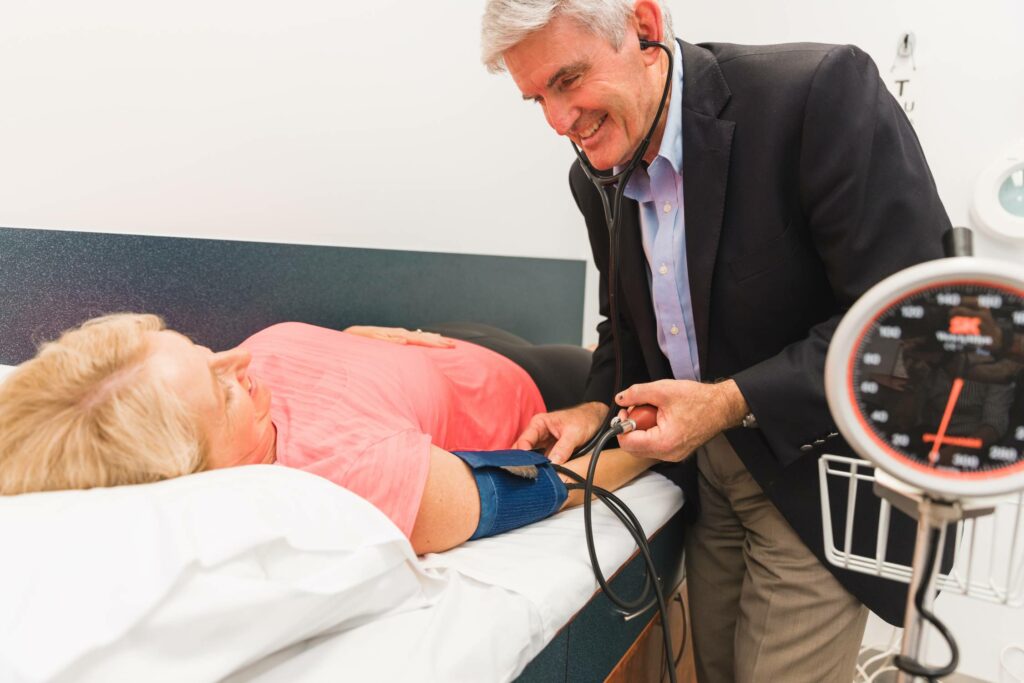Our health is our greatest asset, so its important that we treat it that way. If you’re not feeling your best, it can be difficult to perform well, engage in activities you enjoy, and maintain positive connections with those around you. Even the leading causes of death and disability in Australia are preventable or able to be delayed with early detection and treatment. Almost half of all Australians have health conditions that can be prevented with preventative health measures such as a healthier lifestyle.
What is preventative health?
Preventative health involves measures taken for the purposes of disease prevention and early detection. This might typically involve preventative medicines such as vaccines, or procedures like a dental cleaning. In a previous blog, we talked about skin checks as an early detection and preventative measure for skin cancers and how they can even save lives.
Psychological wellbeing is a major influence and part of your health too. As we saw in a previous blog about optimism, the link between our physical health and psychological wellbeing can be stronger than we might think. When we consider wellbeing in addition to health, the umbrella of prevention cares for a lot more than pre-emptive procedures and medicines. Habits and lifestyle have a huge influence over health and wellbeing, and forming healthy habits and lifestyles can also be considered preventative. This study published in the British Medical Journal, for example, suggests that healthy eating and nutrition may delay the onset of dementia by a number of years. Another study that considers healthy lifestyle choices including diet, exercise, active social contact, active cognitive activity, and tobacco and alcohol consumption found that these factors were associated with better memory and cognitive longevity.

Dr Toby Ford performing a health assessment to detect possible health risks as early as possible.
Treating your health as an asset
Preventative health measures are possibly the best way to take control of your health. It’s important to treat your health as your greatest asset because it directly affects your ability to enjoy life and pursue your goals. By prioritizing your health, you can ensure that you have the energy, focus, and ability to pursue the things that matter most to you. It also means that you are less likely to have health complications arise that require attention after something has already gone wrong. This can become expensive, and even dimmish your health further by affecting your immune system or state of mind.
Think of taking care of your health like keeping a boat afloat. It will take a lot more work to save a ship when it starts sinking and even more work to recover a ship after it has sunk, than it will to maintain the boat in the first place.

Does preventative health care replace my GP?
The short answer is no. General Practitioners (GPs) play an important role in episodic care: where a health concern or issues is addressed as it arises or worsens. That’s not to discount the role your GP plays in standard preventative health care where they might take your blood pressure, conduct planned screenings, or provide referrals for further investigation into a detected concern. However, the GP model of practice with approximately ten (10) minute consults might limit detailed conversations about health and wellbeing concerns, causing the care to be fragmented.
Preventative health can benefit the workplace too
Workplaces can benefit greatly when their executives and employees are taking steps to prevent health risks. When enacting a health and wellbeing program in the workplace, some of the benefits to the business include:
- Reduced costs caused by absenteeism
- Reduced costs for employee assistance programs
- Improved productivity
- Boosted morale
- A growing culture of health and health literacy, and
- Compliance with regulations such as the new psychosocial harm reduction obligations that can into effect this year (2023).
A full and comprehensive health assessment can be the first step to taking control of your health and building your health literacy understanding to live a healthy, fulfilling life. If you think you and your colleagues are ready to take control of your health and treat it as an asset, get into contact with our friendly team today!
To read more about health and wellbeing, follow us on LinkedIn!





